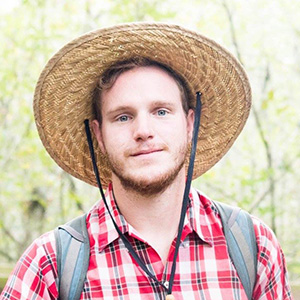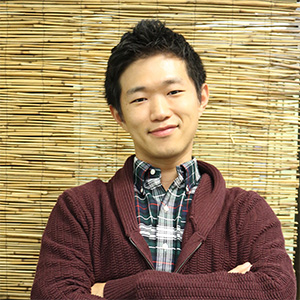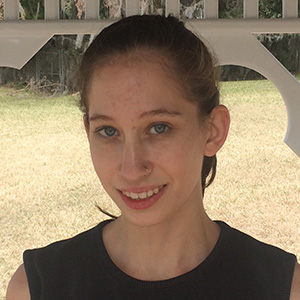Four students from Florida universities have each received $2,000 from the Florida Sea Grant Scholars program to support their research in timely and innovative ocean and coastal-related studies.
The 2018 Florida Sea Grant Scholars are:
- Alexis Sturm, Florida Atlantic University
- Kendal Jackson, University of South Florida
- Kwan Kim, University of Florida
- Jamila Roth, University of Florida
This year’s scholars are conducting research important to the health of ocean ecosystems statewide. Topics range from studying coral DNA to understanding how ancient coastal environments have changed over time. In addition to the monetary award, each student will have the chance to meet with Sea Grant’s outreach faculty, and learn about Sea Grant’s statewide program of extension and education.
Karl Havens, director of Florida Sea Grant, said the program helps develop the next generation of marine scientists and resource professionals by exposing them to the state’s top research and extension faculty.
“We are pleased that Florida Sea Grant can support the research of such outstanding young professionals, and give them an opportunity to learn about our program, including the exciting work by our extension agents in Florida coastal communities,” he said.

Alexis Sturm
Alexis Sturm is completing a Ph.D. in integrative biology at Florida Atlantic University’s Harbor Branch Oceanographic Institute. For her dissertation research, she is assessing the level of connectivity among populations of corals in Cuba and the Florida Keys. She does this by investigating whether the coral populations are genetically similar, through the sampling and extraction of DNA.
“If corals in Florida are genetically similar to corals in Cuba then these populations are likely highly connected. In other words, there is likely to be high levels of gene flow or larval exchange among these sites,” Sturm said. “This is important to know for management and conservation purposes because it supports the need for both countries, the U.S. and Cuba, to work together to establish management practices that are mutually beneficial for reef conservation.”
Sturm said her future career goal is to conduct applied research that relates to management and conservation efforts, particularly relating to marine protected areas. She gained first-hand experience in this through internships with the NOAA Office of National Marine Sanctuaries, NOAA Fisheries Office of Protected Resources and the National Science Foundation-funded Research Experiences for Undergraduates program. She also spent a summer in Guam developing a successful monitoring program to assess coral health in a marine preserve.
Joshua Voss, an assistant research professor of coral reef and molecular ecology at FAU Harbor Branch, said Sturm’s coral research has the potential to make substantial advances in coral biology.
“Given the importance of coral reef ecosystems on a global scale, the many threats reefs are facing, and the critical role of reproduction and dispersal in allowing reefs to thrive, the project Ms. Sturm is developing is both timely and critically needed,” Voss said.

Kendal Jackson
Kendal Jackson is earning a Ph.D. in applied anthropology at the University of South Florida. For his dissertation, he is studying fossilized pollen grains in soils along Florida’s Gulf coast to better understand how ancient coastal environments have changed over time.
“By tracking changes in the pollen record, I can reconstruct when and how environmental conditions changed, and even how human communities may have impacted local ecosystems,” Jackson said. “By understanding how coastal landscapes and human communities responded to environmental changes in the past, it is my hope that we can better respond to modern-day sea-level rise and climate change.”
While pursuing his bachelor’s degree, the USF Archaeology lab became Jackon’s home away from home. Since there were no graduate students at the time, Jackson stepped in to a co-lab manager role where he and another student worked on environmental archaeology work at Weedon Island Preserve. This included opening excavations of ancient midden ridges made of mollusk shell, bone, discarded pottery and flaked stone.
Jackson said his future career goal is “to produce knowledge that helps us better understand the world around us, and that helps communities prepare for climate change.”

Kwan Kim
Kwanmok Kim is a Ph.D. student in interdisciplinary ecology at the University of Florida School of Natural Resources and Environment. For his research, he is studying the complex design of the spaces between clumps of oysters, called interstitial spaces, that are important habitat for juvenile marine life as well as prey species such as crabs. The shapes and sizes of these interstitial spaces are crucial to understanding species interaction in the ecosystem.Think of these spaces as nooks and crannies on a piece of bread, Kim said.
“Depending on the shapes and sizes of the crannies, the bread will absorb butter differently, which affects the overall taste of the bread,” he explained. “That is why bakeries have been trying to figure out the optimal structure of these nooks and crannies. This is analogous to my study. In other words, what are the best types of nooks and crannies for the species inhabiting oyster clusters?”
He is using 3-D printed oyster clusters to conduct the final experiments in his project. Before attending UF, Kim worked as a project coordinator for Birdlife International, where his goal was to conserve Yubu Island in South Korea, one of the biggest stopover sites for migratory birds in the East Asian-Australasian Flyway.
Peter Frederick, a research professor at UF, said Kim’s research is rigorous and aimed at practical applications.
“This research is very likely to result in usable recommendations about oyster reef construction techniques and oyster reef management,” Frederick said. “His work also contributes directly to the larger body of work on structural complexity in ecological systems.”

Jamila Roth
Jamila Roth is pursuing her Ph.D. in interdisciplinary ecology at the University of Florida School of Natural Resources and Environment. For her dissertation, she is studying how human-related stressors, such as increased phosphorous from sewage and agriculture, as well as warming temperatures, affect seagrasses and the animals that depend on them.
“The results of my study will help us predict how seagrasses, an important resource for marine communities, will respond to climate change in the future,” Roth said. “This information will be important for effectively managing and restoring critical marine ecosystems.”
Prior to starting her Ph.D., Roth served as a New York 6 Upstate Global Collective Research Fellow where she studied invasive species in the Finger Lakes. She says this fellowship is where her “love for aquatic ecology research blossomed.” From there she went on to study tropical biology in Costa Rica with the Duke University Organization for Tropical Studies.
Her future career goal is to research marine ecology questions that “have critical restoration and conservation applications.”
“In addition, I want to work to prevent the silencing of marginalized individuals in order to increase a diversity of perspectives voiced as well as the diversity of practical solutions available to combat the growing number of problems faced by marine communities and local economies,” she said.



